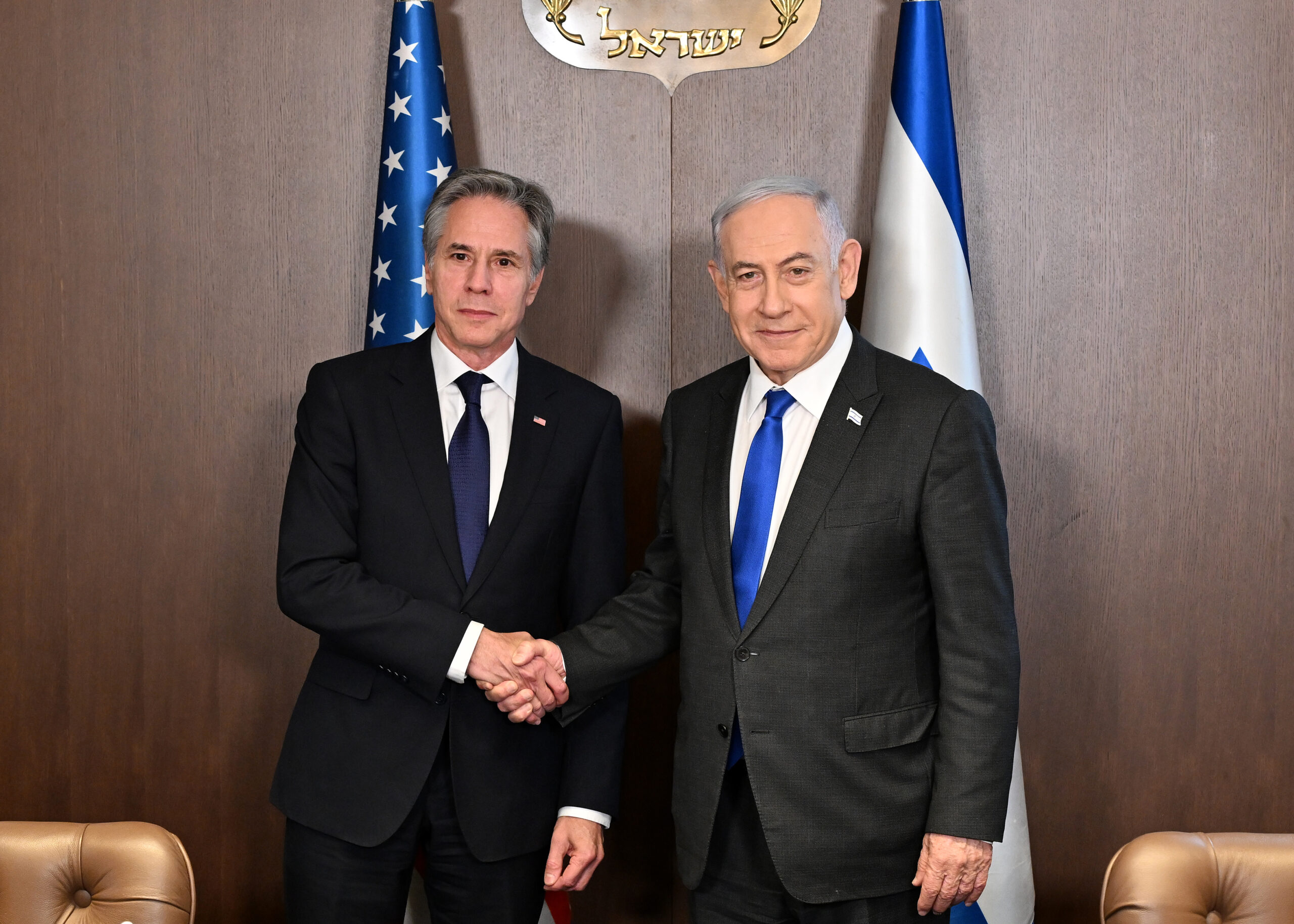AuthorsTamer Morris, The University of Sydney
On Monday, May 20, 2024, International Criminal Court’s (ICC) Prosecutor Karim Khan announced that his Office has applied for arrest warrants for key figures from Israel and Hamas, including Israeli Prime Minister Benjamin Netanyahu and Hamas leader Yahya Sinwar.
Alongside the warrants was a report from a panel of international law experts, which unanimously supported the ICC’s application, and noted that more crimes were under investigation which was “expected to lead to additional applications in the future”.
The reaction of world leaders was mixed. France and South Africa were supportive of the court’s impartiality, while others, such as Austria and the United States, found the announcement “shameful“.
US President Joe Biden called it “outrageous” that, as he saw it, Israeli leaders were considered in “equivalence” with Hamas.
The comments from Biden and other leaders are girded with the underlying sentiment that Khan and ICC should have examined the democratically elected Israeli government differently to Hamas.
Many of the leaders opposing the announcement are the same ones who endorsed the prosecutor’s announcement seeking an arrest warrant against Russian President Vladimir Putin in March 2023.
While double standards in international relations are not new, for the law to be respected, the neutrality of the Court must also be respected. States that seek to undermine the ICC in its investigation and prosecution in the Gaza conflict will find it difficult to credibly use it in other contexts, such as Russia’s aggression against Ukraine.
Whether there is a moral justification for Israel or Hamas’ actions has been a central contention throughout the conflict. Those relying on moral justification believe that an international wrongful act can be precluded if it is in response to an immoral act.
This line of reasoning hasn’t just been used by Western states, but Hamas too — accusing the prosecutor of trying to “equate the victim with the executioner” in applying for arrest warrants on both sides of the conflict.
However, the purpose of international criminal law is that certain actions can never be justified, and therefore, can never be legal. International crimes, if they are committed, are crimes regardless of their moral justifications.
As American law professor Colleen Murphy wrote in October 2023: “Ending and preventing atrocity requires exposing and contesting the narratives that explain, rationalise, and defend the indefensible, enabling human beings to countenance and inflict suffering indifferent to the pain it creates.”
The application of the law, and in particular the prosecutor’s investigations, are to remain impartial. The composition of the ICC, as articulated in its founding treaty, the Rome Statute, the law is to “apply equally to all persons without any distinction based on official capacity.” That means the prosecutor should only consider the crime, not who the person is or what the political implications of an investigation are.
The ICC was created as a last resort for criminal accountability. That is, the court is supposed to complement national proceedings. As a result, it only gets involved if there is nothing being investigated or prosecuted domestically.
US Secretary of State Antony Blinken mentioned this principle in his criticism of the ICC’s application, citing “ongoing investigations into allegations against its [Israel’s] personnel.”
But there’s no evidence of any domestic investigations into Netanyahu or Gallant. Rather, Israel has publicly denied any practice of starvation or the obstruction of humanitarian relief in the International Court of Justice.
If Israel or Palestine are undertaking any domestic investigations, the Rome Statute allows them to challenge the admissibility of the claim. But if claiming so, either state will have to show that the domestic investigations are undertaken in sincerity and not for “the purpose of shielding the person concerned from criminal responsibility.”
The United Kingdom has already suggested the ICC does not have jurisdiction over Israel, citing that the UK “does not yet recognise Palestine as a state” and highlighting that Israel is not a state party to the Rome Statute treaty, from which the ICC draws its jurisdiction.
However, the ICC recognised Palestine as a State Party in 2021, which means it has jurisdiction over crimes perpetrated in whole or in part on its territory. Whether the UK or Israel recognise Palestine’s statehood does not affect the jurisdiction of the ICC. While Israel has not consented to the jurisdiction of the ICC, Israeli individuals can still be brought before the court for crimes they are accused of committing in the territory of a State Party.
This process is in its very early stages: the prosecutor has only applied for warrants, meaning warrants haven’t even been issued. It is now up to a pre-trial chamber to conclude whether there are “reasonable grounds to believe” that the accused have committed the alleged crimes.
There is no timeline for Pre-Trial Chamber review, however in Putin’s case, the arrest warrant was issued within a month of the prosecutor’s application. But this can also take longer — Sudanese military leader Omar al-Bashir’s 2010 arrest warrant was issued nine months after the initial application.
And even if the court grants the arrest warrants, this is unlikely to lead to any arrests in the near future. While 124 states have an obligation to arrest and transfer wanted persons (as parties to the Rome Statute) — notwithstanding the debates on the application of Article 98 — based on previous arrest warrants by the ICC, the chances of these people standing trial is low, though still possible.
Either way, the prosecutor’s application for arrest warrants is one step towards universal accountability for international crimes, which stands to benefit all states.
Tamer Morris is a lecturer at the University of Sydney, where he teaches and researches in international law, United Nations peacekeeping, and international humanitarian law. Tamer also teaches in private international law and the conflict of laws.
Originally published under Creative Commons by 360info™.










